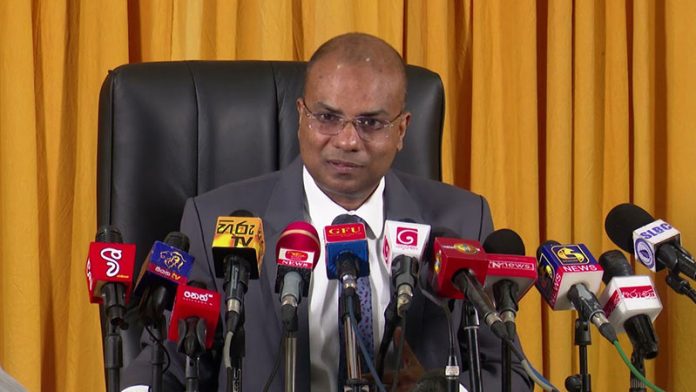Director General of the Commission to Investigate Allegations of Bribery or Corruption (CIABOC), Ranga Dissanayake, emphasized that the fight against corruption should not be swayed by agendas of either the government or the opposition.
Speaking at a conference organised by the Organisation of Professional Associations of Sri Lanka on 5 June, Dissanayake said that the scale and depth of corruption in the country is so severe that it defies comprehension.
“People in this country keep saying, ‘Catch the thieves.’ But it’s not about catching all thieves. It’s about catching those who don’t have affiliations with them. It’s often one thief asking for another to be caught,” he said, alluding to deep-rooted political hypocrisy. “Sometimes, even those who shout the loudest about corruption are themselves part of the problem.”
Dissanayake revealed that widespread corruption has infiltrated state institutions, with decision-making often manipulated through loopholes such as cabinet papers that lack enforceable legal provisions. “When the offence of corruption is not defined in a way that allows for legal action, accountability disappears,” he said.
He highlighted challenges in quantifying the financial losses from corruption, saying, “You can’t always say it’s Rs 12 million or Rs 13 million. Sometimes, it’s Rs 150 million or Rs 300 million. The mental element of intent and awareness plays a big role in these cases.”
Notably, he stated that certain recent prosecutions were only possible due to targeted interventions. “I didn’t do anything extraordinary. I simply acted within the powers granted by the law and used the limited resources we had wisely.”
Dissanayake said the Commission has received an overwhelming number of complaints — some dating back many years — and is not interested in crafting new political narratives. “We do not wish to be used by either the ruling party or the opposition.”
He also criticised the lack of cooperation from within government institutions. For example, he mentioned a recent raid on a motor vehicle department office, where Rs 4.1 million bribe in cash was discovered. “Despite this, not a single internal complaint had ever been made against those responsible.”
He added, “We know the entire system is broken. On the day of that raid, operations in the office came to a complete halt. That shows you the scale of dysfunction.”
Dissanayake suggested setting up CIABOC branches in high-risk institutions like the Passport Office, Customs, and Excise Department to strengthen oversight. He also addressed growing concerns over how stolen money is being concealed — whether in property or through other means — and encouraged the public to provide information. “We believe some of this stolen money still exists as cash. If people have suggestions or intel, we’re open to it.”
He also discussed a recent case filed against a well-known politician who failed to justify Rs 150 million worth of assets accumulated over two years. “We calculate legitimate income and expenses. Anything unaccounted for is investigated thoroughly,” he said.





